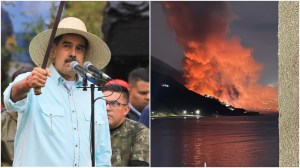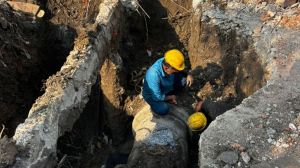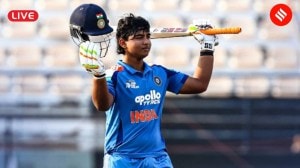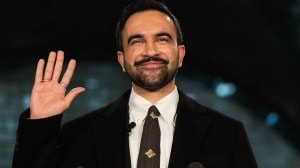Subcontinental hot air drift
THE YEAR: 2048 ADTHE EVENT: Indo-Pak Composite DialogueTHE AGENDA: Tulbul Navigation Project amp; Wular Barrage/ Sir Creek Maritime Boundar...

THE YEAR: 2048 AD
THE EVENT: Indo-Pak Composite Dialogue
THE AGENDA: Tulbul Navigation Project amp; Wular Barrage/ Sir Creek Maritime Boundary Dispute/ Siachen Dispute/ Economic and Commercial Cooperation/ Terrorism and Drug Trafficking/ Promotion of Friendly Exchanges in Various Fields
The 338th round of the Composite Dialogue process facilitated by secretary-level talks concluded in Delhi last night, with both sides reiterating their known positions. There was no obvious meeting ground although both sides agreed to work towards a comprehensive solution in the foreseeable future. Both sides agreed that a final view on these issues would only be possible after both sides undertook a detailed study, keeping in mind the various imponderables that may from time to time present themselves and which may have strategic and developmental repercussions in their respective countries. The discussions were held in a frank and constructive atmosphere.
Coming to each specific item, the TulbulNavigation Project amp; Wular Barrage talks remained stuck due to differences in perception over the status and purpose of the Tulbul Navigation Project/Wular Barrage. There was also some stalling over the protracted differences in perception over the nature and scope of the Indian project on the Jhelum river. However, both sides agreed to disagree and will continue their talks on the issue.
The intractable Sir Creek dispute continued to flounder on such crucial questions as whether maps should be drawn with pens or pencils, and whether the purple line of Zone R of Map D-5580 should be the acknowledged line of demarcation or whether the line comprising dashes and dots be so acknowledged. The interlocutors also spent 36 hours agreeing to disagree on whether the Sir Creek was navigable or not. The suggestion that a boat be despatched forthwith to test its waters sank like the Titanic in an unchartered sea of words. Both sides, however, agreed to continue the process of consultations on the issue.
The battle ofwords over the world8217;s highest battleground at Siachen 8212; 5,000 m above sea level 8212; continued, even as news came in that both sides have together lost to frostbite over three million men, men who valiantly laid down their lives so that their leaders could continue the process of talking to each other. The talks failed to report any forward movement, with both sides restating their known positions.
India was in favour of an incremental approach to the problem, while Pakistan indicated its desire to call in third-party mediation in Kashmir, which it saw as contiguous with Siachen. However, both sides reiterated that they did not wish to be needlessly pessimistic and hoped that the matter would be resolved through mutual discussion before the Siachen Glacier, presently melting at the rate of 0.003 mm per year, disintegrated completely.
As for economic and commercial cooperation, Pakistan firmly stated that growth of trade and commerce with India was linked to peace and security in the region and peace andsecurity in the region was linked in turn to peace and security in Kashmir and therefore there was need for international mediation in Kashmir. India, on its part, insisted that Pakistan desist from trying to internationalise Kashmir and bring such extraneous factors into issues concerning matters such as the movement of onions between the two nations. It further insisted that Pakistan bestow on this country the Most Favoured Nation status. Although the two interlocutors did not even meet each other half way, they agreed to carry on their dialogue.
On the vexed issue of terrorism, India firmly demanded that Islamabad close down its terrorist camps and desist from sending unmanned aeroplanes from across its borders. Pakistan, in turn, reiterated that India must desist from launching terrorist attacks in its cities, and must agree to third-party mediation in Kashmir if cross-border terrorism and drug trafficking are to be discouraged. They, however, agreed to disagree and keep the process of compositedialoguing going.
The two sides were, however, happy to report a partial breakthrough in the final session of the Composite Dialogue, which had as its theme, Promotion of Friendly Exchanges in Various Fields8217;. Both sides agreed to keep the process of composite dialogue going, so that the Composite Hot Air so emitted could be gainfully utilised for providing valuable heating to the suffering peoples of Kashmir during the severely cold winter months.
However, no breakthrough was achieved in quantifying the hot air so emitted, with India insisting that it had accounted for at least 75 per cent of the emissions and Pakistan making a similar claim. Pakistan wanted international monitoring of the emissions but India strongly reiterated its opposition to such third-party mediation in matters of mutual concern. Both sides, however, agreed to disagree on the issue and hoped to achieve a breakthrough on the issue in the foreseeable future.
- 01
- 02
- 03
- 04
- 05































